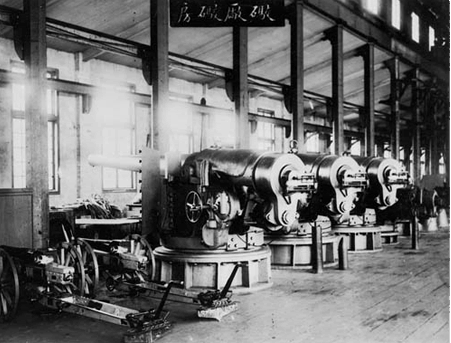追寻历史的足迹――中国民族工业的发展历程
材料一 1865年创办的近代军事工业——江南制造总局

材料二:

材料三 建国初期,毛 * * 曾感慨地说:“现在我们能造什么?能造桌子椅子,能造茶碗茶壶,能种粮食,还能磨成面粉,还能造纸;但是,一辆汽车、一架飞机、一辆坦克、一辆拖拉机都不能造。”
阅读上述材料,结合所学知识请回答:
(1)图二的创办者是谁?中国民族工业的最初萌芽是在什么时期?
___________________________________________________________________________________
(2)认真分析材料二表格中的数据,说说该时期民族工业的发展出现了什么变化?出现这些变化的原因是什么?
___________________________________________________________________________________
___________________________________________________________________________________
___________________________________________________________________________________
(3)材料三中毛 * * 的感慨反映出当时中国工业发展的什么状况?面对这种状况,我国政府采取什么措施开始了工业的建设,使我们有了自己的第一辆汽车、第一架飞机?
___________________________________________________________________________________
(1)李鸿章;洋务运动时期;
(2)这一时期我国民族工业发展迅速。
原因是第一次世界大战期间,帝国主义国家忙于战争,暂时放松了对中国经济的掠夺,中国民族工业获得了一个发展的机会,进入了一个“黄金时代”。
(3)反映了当时中国工业发展的落后状况。实施第一个五年计划。
